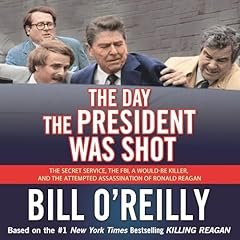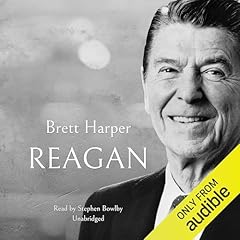
The Accidental Victim
JFK, Lee Harvey Oswald, and the Real Target in Dallas
No se pudo agregar al carrito
Add to Cart failed.
Error al Agregar a Lista de Deseos.
Error al eliminar de la lista de deseos.
Error al añadir a tu biblioteca
Error al seguir el podcast
Error al dejar de seguir el podcast
 Exclusivo para miembros Prime: ¿Nuevo en Audible? Obtén 2 audiolibros gratis con tu prueba.
Exclusivo para miembros Prime: ¿Nuevo en Audible? Obtén 2 audiolibros gratis con tu prueba.Compra ahora por $15.90
-
Narrado por:
-
James Reston Jr.
-
De:
-
James Reston Jr.
Was the assassination of one of America's most beloved presidents an accident?
That is the shocking argument put forth by acclaimed historian James Reston, Jr. Based on years of research and interviews, this revelatory new book makes the case that Texas Governor John Connally, not President John F. Kennedy, was the intended target of Lee Harvey Oswald.
Oswald's motive was personal, not political. After he attempted to defect to the Soviet Union, his military discharge was changed from honorable to dishonorable. The proud ex-Marine protested directly to fellow Texan Connally, then Secretary of the Navy, and received a classic bureaucratic brush-off. From that day on, Oswald began nursing a deep, even murderous grudge.
Reston masterfully charts the path Oswald took toward that fated moment in Dallas, his hatred of the governor driving him to purchase a mail-order rifle, position himself in the Texas School Book Depository building, and attempt to settle his score with Connally.
There was no conspiracy.
There was Lee Harvey Oswald, a mail-order gun, and a missed shot.
Marshaling all the available evidence - some of it never before seen - Reston will change the way we understand this epochal event: In one of American history's most tragic ironies, President John F. Kennedy was as an accidental victim on November 22, 1963.
©2013 James Reston, Jr. (P)2013 James Reston, Jr.Los oyentes también disfrutaron:




















In other word, Kennedy was collateral damage.
It's certainly possible, but there's no clinching piece of evidence here, nothing that nails the case. Reston quotes plenty of evidence that Oswald had a grudge against Connally, but none that the grudge rose to the level of murderous rage. Reston doesn't help his case by his lack of clarity about the single-bullet theory. The theory is essential to his case - so why does he spend so much time focusing on Connally's own refusal to accept it?
The most interesting passage in the book, frankly, was about the jokes Oswald exchanged with George de Mohrenschildt, a Russian emigrant living in the Dallas area. Some of them were actually pretty funny. Who knew that Oswald had a sense of humor?
As an audiobook, there were some odd production choices that further detract from its effectiveness. The first was having Reston himself narrate it. He's not terrible, he's just not very good. (He seems to suffer from the delusion many authors have that their words alone are sufficient to produce the desired effect; no emphasis need be added.)
The producers also, oddly, started off with a list of chapter titles, spoken without preamble or explanation. Fortunately there are only 10 of them. And the audiobook ends with 20 minutes of spoken footnotes. I don't think I've ever heard that before. Sometimes footnotes can be effectively merged into the narration, but left to the end of the book? Not so good.
On the whole, I'd have to say take a pass on this one. If Reston's case were compelling, it would be worth overlooking the other flaws. But it isn't.
Take a pass
Se ha producido un error. Vuelve a intentarlo dentro de unos minutos.


